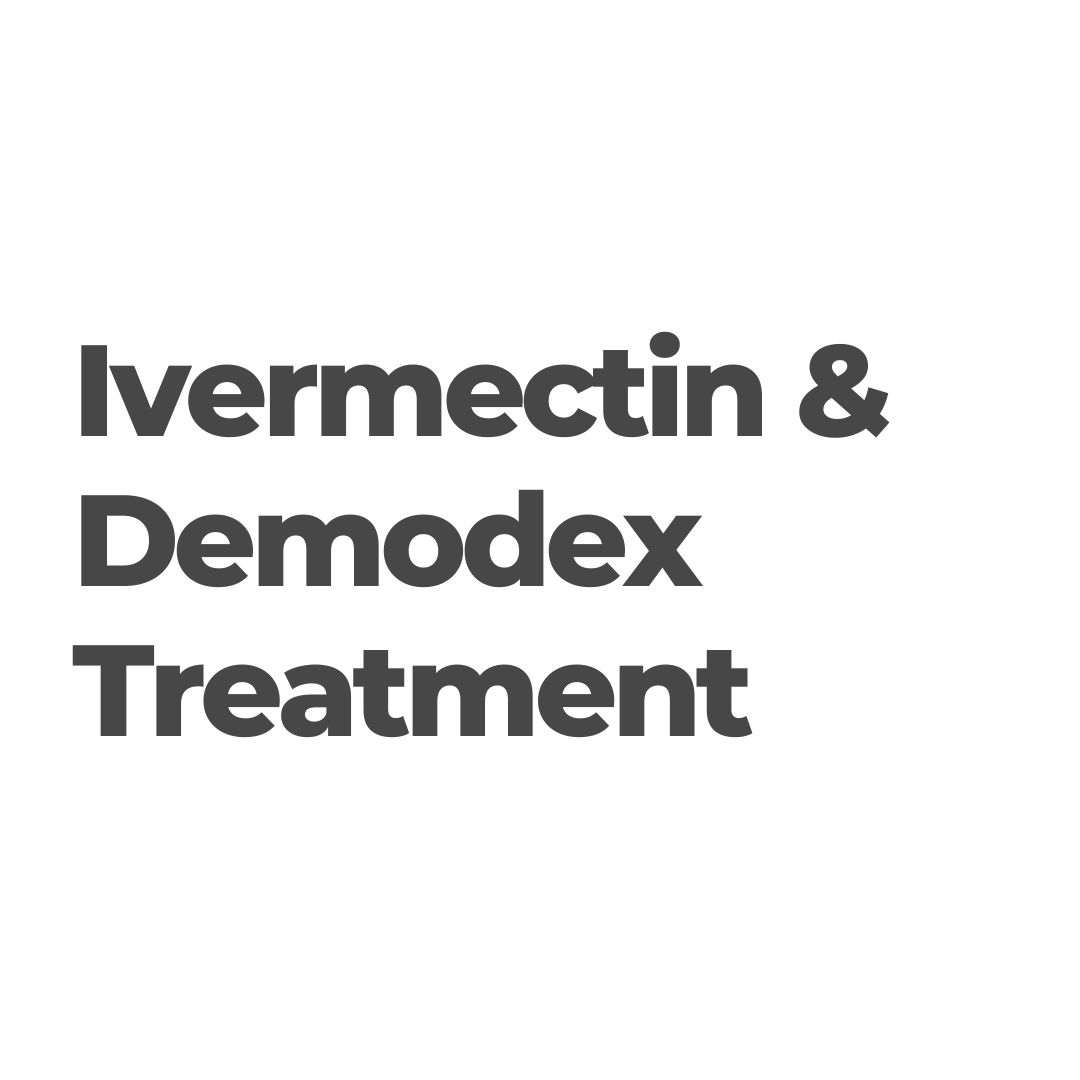Vitamin Deficiencies from A-Z
Vitamins, crucial organic compounds necessary for normal cell function and growth, are not naturally produced by the human body. There are 13 indispensable vitamins, including key players like vitamin A, D, E, and K, which are fat-soluble, and vitamin C along with all B vitamins, which are water-soluble. To ensure their effectiveness, fat-soluble vitamins should be consumed with dietary fat and can be stored, while water-soluble vitamins need regular intake.
Vitamin deficiency, stemming from a suboptimal diet or poor absorption, poses a significant threat to long-term health. This deficiency can lead to cellular damage caused by oxidation, the root of various disease processes. The eye, with its high metabolic activity, generates reactive oxygen species during this oxidative process, contributing to oxidative stress.
Oxidative stress triggers inflammation and damages cells, including DNA, RNA, and mitochondria, culminating in cell death if left unaddressed. Essential vitamins, nutrients, and antioxidants act as a shield against this process. By addressing vitamin deficiencies, we can intervene in the progression of ocular diseases, preventing further vision loss.
Vitamin A
Vitamin A, a key player in maintaining eye health, is indispensable for the formation of rhodopsin, the photopigment found in the rods. Vitamin A exists in numerous forms, can be natural or synthetic, and is available by prescription and OTC. This crucial nutrient holds the reins for night vision, making it pivotal in preventing night blindness—a common early sign of vitamin A deficiency.

The relationship between vitamin A and dry eyes is complex.
The Good:
- Promotion of corneal epithelial cell health and wound healing
- Enhanced mucin production
- Reduction of ocular surface hyperkeratinization
The Bad:
- Dermatology often utilizes vitamin A-based products to address various skin concerns, such as unclogging pores, stimulating collagen production, and improving collagen density. However, due to the resemblance of meibomian glands to specialized sebaceous glands in the eyelids, eye care providers must exercise caution. The use of products that potentially impede meibum secretion can lead to a spectrum of ocular issues, ranging from mild dryness to severe conditions like meibomian gland atrophy and associated ocular surface desiccation. Consequently, it's essential for eye care practitioners to inquire about the use of skincare products containing vitamin A derivatives and consider advising against their application near the eyes, especially with stronger derivatives. Typically, "retinoids" denote more potent forms, while "retinol" and "retinyl esters" are linked to milder over-the-counter preparations.
- Oral isotretinoin, also referred to as 13 cis-retinoic acid, is prescribed for stubborn acne vulgaris as it aggressively reduces sebaceous gland secretions, leading to sebaceous gland atrophy and a significant decrease in sebum production, often by up to 90% within six weeks. However, the impact of isotretinoin extends beyond the facial area to affect meibomian glands as well. Studies have demonstrated that isotretinoin induces severe changes in meibomian gland structure and function, including keratinization, acinar cell degeneration, fibrosis around ducts, glandular atrophy, reduced cell proliferation, epithelial cell death, altered gene expression, increased inflammation, elevated eyelid bacterial colonization, toxicity to conjunctival goblet cells, and telangiectasia of the eyelid margin. Although symptoms may alleviate upon discontinuation of isotretinoin, the structural changes in meibomian glands are typically irreversible.
Vitamin A Deficiency Effects on the Eyes
- Corneal Xerosis
- A dry, hazy appearance to the cornea
- Bitot's Spots
- A triangular patch of dry conjunctiva, a classic sign of vitamin A deficiency
- Bitot’s spots usually occur temporally side of the eye and do not wet with tears
- Corneal Ulcerations
- Night Blindness
- Or difficulty seeing in low light conditions
- Vision Loss
- If untreated, can lead to permanent vision loss
Vitamin B1 (Thiamine)
Vitamin B1, also known as thiamine, is an essential nutrient that plays a crucial role in various bodily functions, particularly in energy metabolism and nerve function. It is a water-soluble vitamin, meaning the body doesn't store it and it needs to be obtained from the diet regularly.
Vitamin B1 Deficiency Effects on the Eyes
- Wernicke encephalopathy
- Characterized by confusion, ataxia, and ocular abnormalities, including double vision, nystagmus, ophthalmoplegia, and ptosis (rarely).
Vitamin B6 (Pyridoxine)
Vitamin B6 aids in the production of haemoglobin and is important in cellular metabolism.
Vitamin B6 Deficiency Effects on the Eyes
One case report found vitamin B6 deficiency to be the cause of Roth-type, white-centred retinal haemorrhage and non-epileptic seizures, which resolved with B6 supplementation.
Vitamin B9 (Folic Acid) and B12 (Cobalamin)
Vitamin B9 (folate) is crucial for DNA synthesis and cell division, making it particularly important during periods of rapid growth, such as pregnancy and infancy. It also contributes to the development and maintenance of the nervous system. A deficiency in vitamin B9 can lead to anemia, birth defects, and other health problems.
Vitamin B12 is essential for DNA synthesis, red blood cell formation, and nerve function. It also plays a role in energy metabolism and homocysteine metabolism. Homocysteine is an amino acid that, when elevated in the blood, can increase the risk of heart disease, stroke, and other health problems. A deficiency in vitamin B12 can lead to anaemia, nerve damage, and other health problems.
Vitamin B12 comes in two forms: methylcobalamin and cyanocobalamin. Methylcobalamin, the natural form found in food, is more bioavailable and actively participates in bodily functions without needing conversion. It plays a vital role in reducing homocysteine levels.
Methylcobalamin contributes to maintaining optic nerve health, myelin sheath integrity, and nerve function, essential for preserving vision. Studies have shown its effectiveness in conditions like glaucoma and age-related macular degeneration, as well as relieving dry eye symptoms and improving visual accommodation.
Deficiencies in Vitamin B12 and B9 frequently co-occur. Therefore, if you suspect a deficiency in either one, it would be advantageous to test for both.
Vitamin B9 & B12 Deficiency Effects on the Eyes
Ocular manifestations of vitamin B12 deficiency are uncommon. Instances of optic atrophy have been reported, and less frequently, optic neuritis has been observed with only partial resolution after B12 administration.
In a particular study, patients with vitamin B12 deficiency exhibited a thinner retinal nerve fibre layer (RNFL) thickness compared to those with normal B12 levels. This finding may raise concerns for individuals with conditions affecting the RNFL, such as glaucoma.
In a documented case, B12 deficiency led to extensive retinal haemorrhaging, including Roth spots and pre-retinal haemorrhages due to pancytopenia. The retinal haemorrhages resolved with interventions like blood transfusion, a return to an omnivorous diet (the patient had been vegan), and vitamin B12 supplementation.
Vitamin C
Vitamin C deficiency is defined as a serum concentration of less than 11.4μmol/L.
Vitamin C is an essential nutrient that plays a vital role in maintaining overall health. It is involved in numerous bodily functions, including collagen production, antioxidant protection, iron absorption, immune system support, wound healing, and neurotransmitter synthesis.
Vitamin C Deficiency Effects on the Eyes
Haemorrhaging: Vitamin C is a crucial component in the collagen basement membrane and blood vessels, plays a key role in preventing haemorrhaging. A deficiency in this vital vitamin can result in haemorrhages in multiple organs, including the eyes. Notably, retinal haemorrhaging and subconjunctival haemorrhages are often observed in individuals lacking sufficient vitamin C.
Retina: Elevated glucose levels, commonly associated with diabetes, can lead to increased oxidative damage. This interaction underscores the importance of maintaining optimal levels of vitamin C to counteract potential harm. Patients with proliferative retinopathy, for instance, exhibit a substantial decrease (10-fold) in vitreous levels of vitamin C compared to controls. This deficiency may contribute to macular ischemia, particularly in those with proliferative diabetic retinopathy (PDR).
Glaucoma: Research reveals that patients with normal-tension glaucoma (NTG) exhibit significantly lower levels of serum vitamin C compared to their healthy counterparts with no ocular diseases. Intriguingly, no such difference is observed in serum levels of vitamins A, B9, and E.
Vitamin D
Vitamin D deficiency is defined as <20ng/ml, according to the National Institutes of Health (NIH).
Vitamin D is a fat-soluble vitamin, plays a crucial role in maintaining overall health and well-being. It is essential for calcium absorption, which is necessary for strong bones and teeth. Vitamin D also supports the immune system, cell growth and differentiation, and muscle function.
Vitamin D Deficiency Effects on the Eyes
Glaucoma: Several observational studies have suggested a correlation between glaucoma and lower serum levels of vitamin D. Although research on primates has indicated a potential reduction in intraocular pressure (IOP) with vitamin D treatment, human studies have not consistently replicated this effect.
Some studies suggest that vitamin D may influence glaucoma by mitigating oxidative stress and inflammation, key contributors to its pathogenesis. However, the impact of vitamin D on intraocular pressure (IOP) remains a subject of controversy.
It is noteworthy that a systematic review encompassing nine studies found no conclusive association between serum vitamin D levels and primary open-angle glaucoma (POAG), normal-tension glaucoma (NTG), or exfoliative glaucoma.
Cataracts: In a comprehensive study, a significant correlation emerged between low vitamin D levels and the development of posterior subcapsular cataracts (PSC), underlining the pivotal role of nutrition in ocular health. The participants exhibiting PSC were found to have vitamin D levels falling within the "vitamin D insufficiency" range (24ng/mL [+/-11SD]), shedding light on the potential impact of inadequate nutrition on eye conditions.
Remarkably, a subgroup of five patients, diagnosed with early posterior subcapsular water cleft cysts and retro dots, experienced complete resolution of their PSC when administered a daily dosage of 5,000IU of vitamin D.
Age-related Macula Degeneration: Age-related macular degeneration (AMD) involves the retina, choroid, and retinal pigment epithelium (RPE), with vitamin D playing a crucial role.
Research highlights its impact on AMD, linking low vitamin D levels to the disease. Vitamin D's presence in ocular structures, including receptors and metabolizing enzymes, suggests its potential in addressing AMD pathogenesis.
Studies indicate an inverse relationship between vitamin D plasma levels and late atrophic and/or neovascular AMD. Vitamin D may reduce amyloid beta proteins in drusen and combat inflammation, addressing the root cause of AMD.
Dry Eye: A notable clinical trial highlighted significant enhancements in tear osmolarity and stability. Notably, individuals with clinical vitamin D deficiency (<20ng/ml) experienced positive outcomes when supplemented with vitamin D alongside standard dry eye therapy.
Antioxidants
Lutein/Zeaxanthin/Meso-zeaxanthin
When delving into the realm of nutrition, it's essential to spotlight antioxidants, pivotal defenders against oxidative stress—a leading factor in various ocular diseases, including dry eye disease. While not strictly vitamins, these antioxidants play a crucial role in averting damage.
The most common non-vitamin A carotenoids that are important for ocular health include lutein, zeaxanthin, meso-zeaxanthin, and astaxanthin. Research highlights their efficacy in slowing the progression of conditions like macular degeneration. Notably, lutein and zeaxanthin also exhibit cognitive benefits.
While food sources like leafy green vegetables and egg yolks contain lutein and zeaxanthin, individuals manifesting signs of ocular diseases, such as macular degeneration, may find it challenging to attain sufficient quantities through diet alone. Meso-zeaxanthin, a vital metabolite, remains absent in common food sources.
Recommended doses for antioxidants:
- Lutein (6 to 20mg/day)
- Zeaxanthin (4 to 10mg/day).
Astaxanthin
Astaxanthin, a powerful antioxidant sourced from red algae, krill, and salmon, proves to be a valuable component in promoting eye health.
Studies indicate its positive impact on various eye conditions, including AMD, cataracts, and glaucoma.
Notably, astaxanthin also demonstrates benefits in addressing dry eye disease, alleviating eye strain, and enhancing accommodation.
Dietary sources of astaxanthin:
- Red algae
- Salmon
- Krill
- Shrimp
The recommended dose for astaxanthin is 4 to 6mg/day.
Omega 3
Fish oil, specifically enriched with eicosapentaenoic acid (EPA) and docosahexaenoic acid (DHA), is arguably one of the most important nutrients for ocular and systemic health.
Did you know that the vital nutrients in fish oil, particularly DHA, make up over 50% of the lipid content in photoreceptors? This makes fish oil a key player in improving retinal function. Not only recognized for its effectiveness in dry eye relief, but fish oil also proves beneficial for managing retinal diseases.
When it comes to combating dry eye disease and promoting eye health, consider incorporating "SMASH" fish into your diet. These smaller fish, namely sardines, mackerel, anchovies, salmon, and herring, boast lower mercury content and are rich in the essential components your eyes need. Additionally, supplementing your diet with fish, cod liver, or krill oil can provide the necessary nutrition to address issues like exudative AMD, diabetic retinopathy, and glaucoma.
Age-related Macula Degeneration: In a study, patients with wet AMD receiving intravitreal anti-VEGF injections and concurrently taking 1000mg of fish oil exhibited lower levels of vitreal vascular endothelial growth factor (VEGF) compared to those receiving injections alone.
Cold-water fatty fish consumption (2 to 3 servings per week) has also been shown to reduce the risk in developing exudative AMD by up 50%.
Diabetic Retinopathy: Fish oil not only enhances the sensitivity of pancreatic beta cells but also directly improves capillary permeability and reduces retinal inflammation. Studies have demonstrated its efficacy in delaying the onset of diabetes and ameliorating diabetic retinopathy, including diabetic macular edema.
Glaucoma: Research has demonstrated that fish oil can enhance circulation, thereby aiding optic nerve perfusion and enhancing visual field indices. This makes it a valuable consideration as an adjunct therapy for patients with primary open-angle glaucoma (POAG).
Fish Oil for Eye Health Guide
Start appropriate patients on 2-3 servings of low mercury, cold water fatty fish per week:
- Sardines
- Sockeye Salmon
- Anchovies, Mackerel
- Wild Trout
- Fish/krill oil supplements 1000-1500mg/day
Precaution:
- Excessive bleeding:
- Administering EPA and DHA at doses exceeding 3000 mg per day may elevate the risk of bleeding. Consider this especially if patients are using blood thinners or taking supplements with known anticoagulant effects such as Aspirin, Clopidogrel bisulfate (Plavix), and Warfarin (Coumadin).
- Immunocompromised:
- Given that the combination therapy of omega-3 and -6 effectively suppresses inflammatory responses and benefits individuals with inflammatory or autoimmune conditions, exercise caution in cases of compromised immune systems due to reduced ability to combat microbial pathogens.
- Upset stomach:
- Higher doses of fish oils and the less digestible EE forms of supplementation are more likely to lead to indigestion, diarrhoea, constipation, and those infamous "fishy burps."
Reduce omega-6 fatty acid consumption:
- Industrial seed oils
- Excessive nuts/grains
- Processed foods
- Farm-raised fish
Optimize omega-6/omega-3 ratio:
- Omega-3 dose (typically 2000mg or more)
- EPA-to-DHA ratio (typically 2:1, such as, 1000mg EPA to 500mg DHA)
Table of food sources for vitamins and fatty acids
| Vitamin/Essential Fatty Acid | Food Sources |
|---|---|
| A | Liver, fish, eggs, dairy products, leafy greens, orange/yellow/red coloured fruits and vegetables |
| B1 (Thiamine) | Organ meat, pork, seeds, squash, fish (especially trout, mackerel, salmon, and tuna), and legumes |
| B6 | Wide variety of plant and animal foods, including leafy and root vegetables, fruit such as bananas, red meat, poultry, and seeds (especially sunflower and pumpkin) |
| B9 | Organ meat, green vegetables (both leafy and non-leafy), legumes, beets, avocados, papayas, strawberries, and pomegranates |
| B12 | Fish (especially sardines, salmon, tuna, and cod), shellfish such as shrimp and scallops, organ meat, beef, eggs, poultry, and some fermented soy products like tempeh also contain vitamin B12 |
| C | Broccoli (102mg/cup), red bell peppers (95mg/cup), strawberries (85mg/cup), oranges (70mg in 1 medium orange), all citrus fruits, dark leafy green vegetables, papaya, guava, cantaloupe, and berries |
| D | Sun exposure (greatest source), salmon, tuna, mackerel, wild mushrooms, fish roe, liver, and eggs |
| Omega 3 | Cold water fish such as salmon, sardines, krill, and mackerel |
| Lutein/Xeaxanthin | Leafy green vegetables, egg yolks, pistachios, orange, and yellow-coloured vegetables |
| Astaxanthin | Salmon, shrimp, krill, and red algae |






